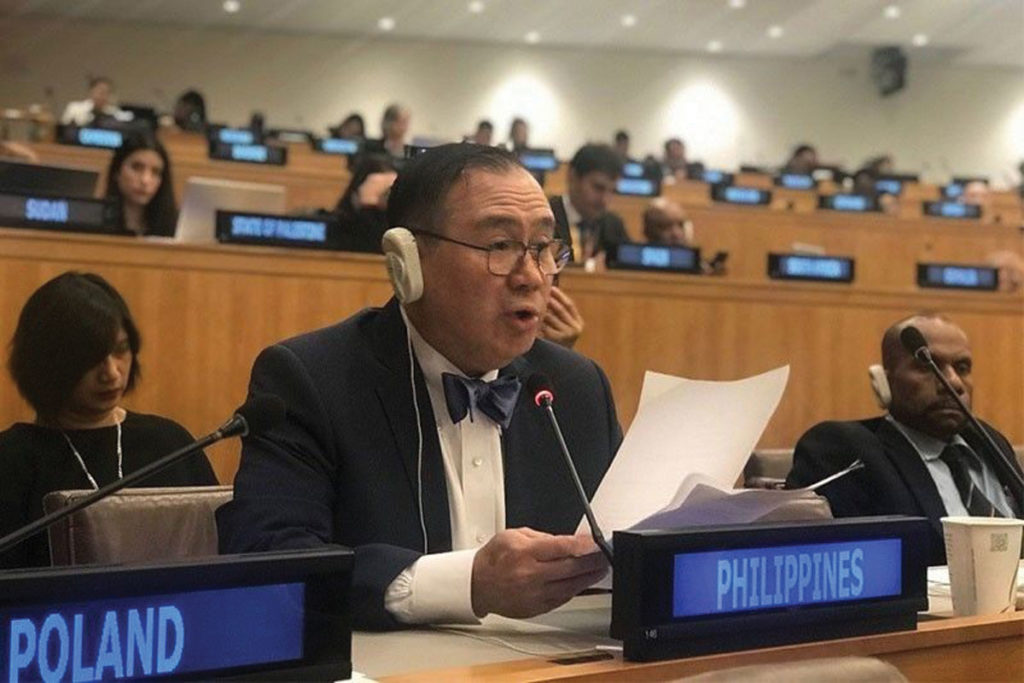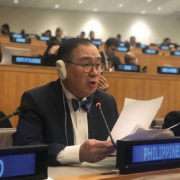
Malacañang on Thursday, September 19, said bringing up the 2016 arbitral court ruling on the West Philippine Sea (South China Sea) before the United Nations General Assembly would be a “futile exercise.”
The statement comes in response to former Foreign Affairs Chief Albert del Rosario who suggested that the administration use the 74th regular session of the UN General Assembly this month as an opportunity to drum up global support for the arbitral ruling.
Presidential spokesman Salvador Panelo, however, countered that suggestion by saying that the UN has no enforcement over the ruling.
“He is citing the case of Nicaragua. Did anything happen there? None. It remained the same,” Panelo said.
Del Rosario brought up Nicaragua filing a reparation case against the U.S. before the International Court of Justice in the 1980s, noting that it got a favorable ruling. The ruling was initially rejected by the U.S., but later on extended significant financial aid package to Nicaragua.
He also said that the Philippines could present a case for the UN “to reassert that right is might and the rule of law must be upheld.”
“In our case, the arbitral tribunal outcome was an overwhelming victory not only for the Philippines but also for the entire world. Unless we allow it, China can no longer claim the South China Sea as its own lake,” Del Rosario said.
Panelo, meanwhile, maintained there would be no significant impact on the country’s position even if Foreign Affairs Secretary Teodoro Locsin Jr. raised the arbitral ruling at the UN assembly in New York.
Locsin echoed the spokesperson’s sentiment, saying that the Philippines would only “lose” as the UN is dominated by countries “grateful” to China.
“We’ve always lost Non-Aligned Movement votes to include our Arbitral Award. My many good friends in UN vote against us. We’ve nothing comparable to offer,” he tweeted Thursday.
Locsin, however, said that the Philippines could “never ever” give up its legal victory against China.
The July 2016 arbitral ruling handed down by the Hague-based Permanent Court Arbitration shot down Beijing’s nine-dash line claim over the South China Sea, part of which is the West Philippine Sea.
China, for its part, has refused to acknowledge the arbitral ruling, saying it would only resolve its territorial row with the Philippines through bilateral negotiations. Duterte recently suggested that the two countries would enter a joint oil exploration deal.
“But we will never ever get [the] UN to vote for Arbitral Award. So let’s leave it as is; move on to mutual beneficial cooperation. Such is life,” Locsin said.
Locsin is scheduled to speak at the 74th regular session of the UN General Assembly on Sept. 28.






